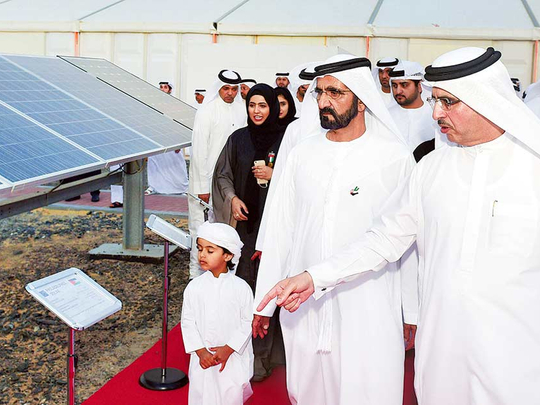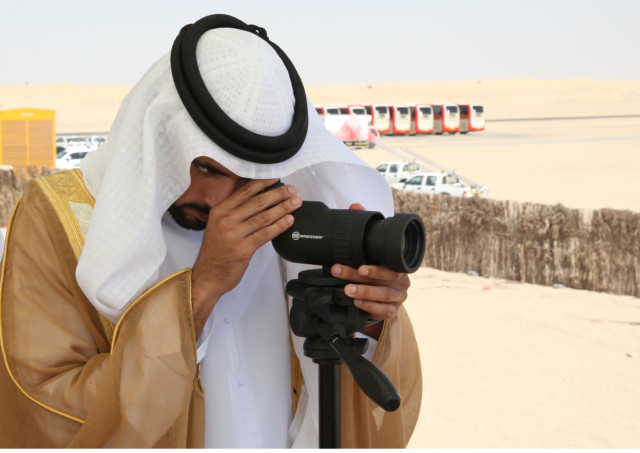
Dubai: The UAE’s decision to achieve a balance between energy production and consumption by 2050 will also help the country meet international environmental commitments.
The UAE Energy Plan for 2050 was launched by His Highness Shaikh Mohammad Bin Rashid Al Maktoum, Vice-President and Prime Minister of the UAE and Ruler of Dubai.
Shaikh Hamdan Bin Mohammad Bin Rashid Al Maktoum, Dubai Crown Prince, was present.
The strategy was announced during a discussion of the future of energy, which was organised by the Ministry of Energy in cooperation with the Ministry of Cabinet Affairs and the Future.
The event aims to bring about a quality change in the culture of energy consumption in the UAE community and diversify sources of energy by doubling the contribution of clean energy and reducing consumption rates in homes and buildings by 40 per cent.
According to the strategy, the UAE’s energy mix will include clean coal, gas, nuclear energy, solar and wind power, and biofuels.
The strategy will aim to invest Dh600 billion to meet demands for energy and ensuring the sustainability of growth in the UAE’s economy, and will also result in savings of Dh700 billion.
The energy equation targeted by the plan is as follows: 44 per cent clean energy, 38 per cent gas, 12 per cent clean coal and 6 per cent nuclear.
The strategy will stimulate economic growth and investment in energy storage, and contributing to reducing power consumption. It marks the beginning for the sustainability of the UAE’s power sector.
The implementation will start with a number of innovative initiatives, including the increase of mutual power cooperation on both the national and GCC level through the GCC Power Grid, which is one of the most integration projects between the Gulf nations.
The strategy will be implemented within three main themes. The first theme focuses on initiatives for the quick transition of power consumption efficiency and diversifying its sources and ensuring the security of its supply. The second theme focuses on finding new solutions that complements power and transport systems, while the third deals with research, development and innovation to ensure the sustainability of energy.
The strategy strives to impart a sense of responsibility towards the rationalisation of energy consumption, and increasing awareness of future generations about power consumption.
It will work to develop cooperation and integration with the private sector in launching joint initiatives and projects, as well as encouraging investments in the field of research and development.













